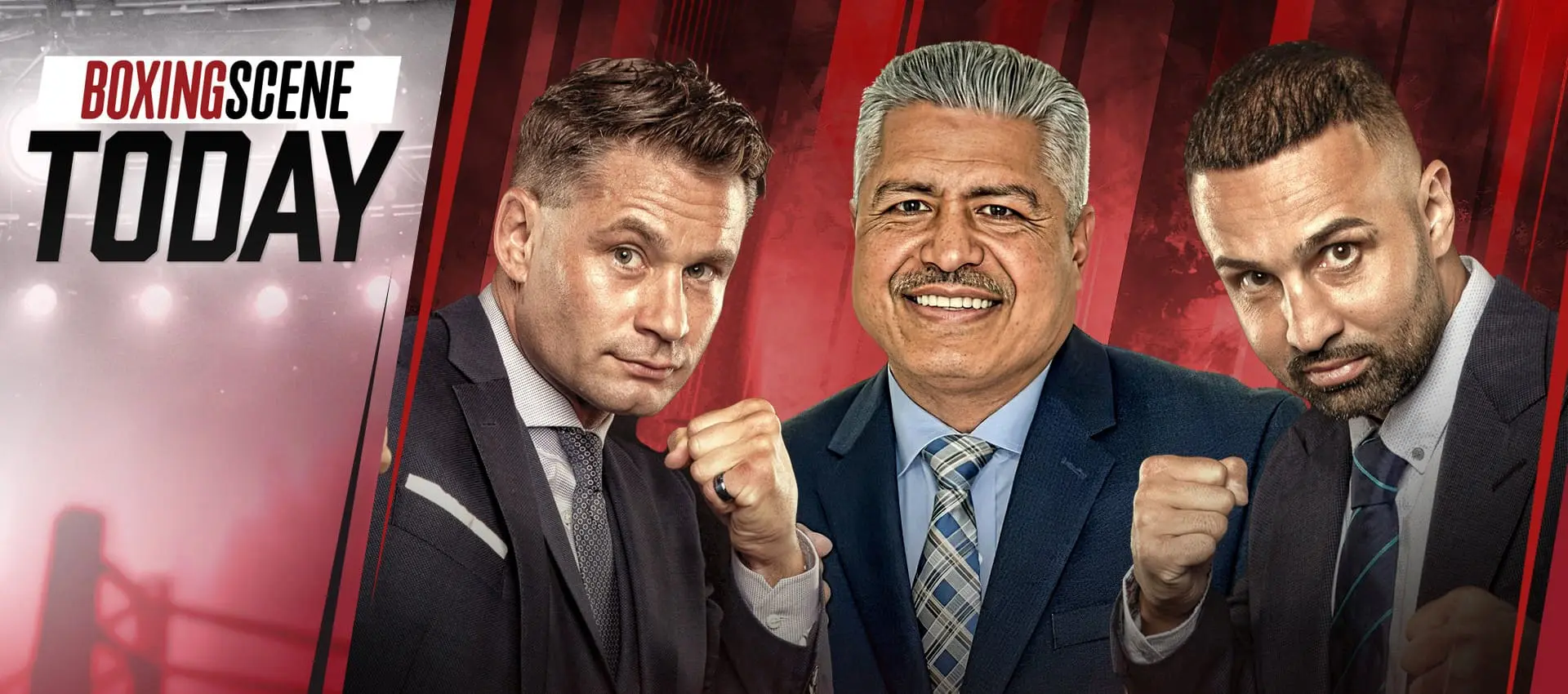
Saturday | Jul 5, 2025 | 2:00 PM EST
Jack Catterall vs Harlem Eubank
DAZNManchester, United Kingdom

Friday | Jul 11, 2025 | 12:00 AM EST
Katie Taylor vs Amanda Serrano
Alycia Baumgardner vs Jennifer Miranda
Ellie Scotney vs Yamileth Mercado
Dina Thorslund vs Cherneka Johnson
Savannah Marshall vs Shadasia Green
Chantelle Cameron vs Jessica Camara
Ramla Ali vs Lila Furtado
Tamm Thibeault vs Mary Casamassa
NetflixNew York City, New York

Saturday | Jul 12, 2025 | 12:00 AM EST
Shakur Stevenson vs William Zepeda
Edgar Berlanga vs Hamzah Sheeraz
Alberto Puello vs Subriel Matias
David Morrell vs Imam Khataev
New York City, New York

Saturday | Jul 12, 2025 | 12:00 AM EST
Lester Martinez vs Pierre DiBombe
Erick Badillo vs Gerardo Zapata
ProBox TVFresno, California
'BoxingScene Today'Talk Show
Pauli, Algieri, and Coach Garcia breakdown today's top stories

Upcoming episode - coming soon
Boxing Interviews
Interviews with boxing biggest stars









